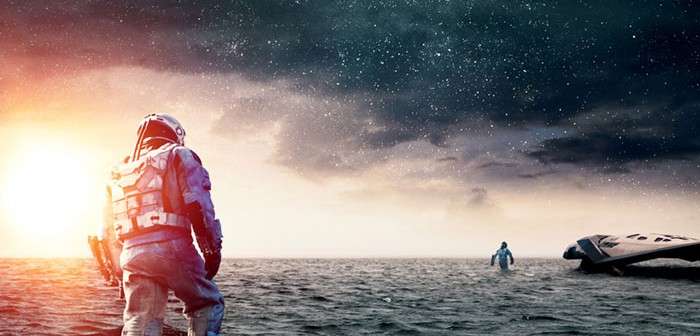Since I like Matthew McConaughey a lot, I knew I would like his new movie, Interstellar a Christopher and Jonathan Nolan film.But three days later, I’m still thinking about the film, for several reasons:
- The cinematography is stunning.
- Remember the Nolans’ 2010 film Inception? Interstellar is like that – we must work to grasp what is happening.
- From the very first scene of this movie, I was hooked-the apocalyptic scenario is strangely credible.
- Lately, Hollywood writers seem more interested; perhaps more open to the actual presence of God: The benevolent ‘They’ living in a five dimensional world may be as close as many 21st century citizens can get to an acknowledgment of God – it’s a start.
Cooper: You don’t believe we went to the Moon?
Ms. Kelly: I believe it was a brilliant piece of propaganda, that the Soviets bankrupted themselves pouring resources into rockets and other useless machines…
Cooper: Useless machines?
Ms. Kelly: And if we don’t want to repeat of the excess and wastefulness of the 20th Century then we need to teach our kids about this planet, not tales of leaving it.
It’s an unnamed year in the future and planet earth is running out of food; the bread basket of the world, the American mid-west, can grow only corn and even the corn crop is endangered. The entire world is as desperate as is the US; so desperate that there are no longer any standing armies-things are reduced, world-wide, to the elemental.
Ms Kelly: We didn’t run out of planes and television sets. We ran out of food.
The conversation between Cooper, a farmer played by Matthew McConaughey and his daughter’s elementary school teacher, Ms Kelly, personifies the shrunken world view of the American people; Cooper sadly observes that
We used to look up at the sky and wonder at our place in the stars, now we just look down and worry about our place in the dirt.
Ironically, it is Cooper, farmer and former NASA test pilot, who is asked by a top secret remnant NASA team headed by Michael Caine to leave his two children in order to pilot an interstellar spaceship in search of sustainable environments for the threatened human species.
Combining relativity and string theory with a dying earth, Christopher and Jonathan Nolan create a visually spectacular journey that is challenging on each of the intellectual, allegorical and spiritual levels. My brain cannot wrap itself around the notions of dark matter, black holes, worm holes and event horizons but the Nolans did a splendid job of cloaking what feels like oxymoronic concepts in excellent satire like this interchange between Cooper and his younger daughter, “Murph.”
Young Murph: Dad, why did you and mom name me after something that’s bad?
Cooper: Well, we didn’t.
Young Murph: Murphy’s law?
Cooper: Murphy’s law doesn’t mean that something bad will happen. It means that whatever can happen, will happen.
But the most powerful punch of this most intriguing film takes place in a discussion; perhaps an argument between Cooper and Brand, another astronaut, well played by Anne Hathaway. Desperately searching for a ‘path’ through the unimaginably immense space that can be traveled in time to save the threatened humans on the rapidly dying earth, Brand suggests love as a dimension they can use to return. Initially, her statement that love is the one thing that transcends time and space is interpreted by Cooper as illustrative of Brand’s inability to be objective. Later, near the end of the film, Cooper understands Brand’s explanation in defending her stance –
… it’s because we are out of theories, we have no more theory to use;’ touching her heart as if in surprise, my heart, I want to follow my heart.

